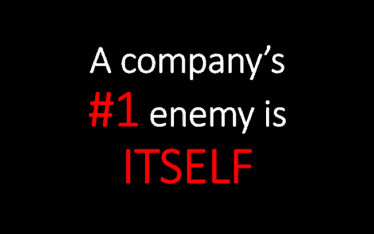Organizations must anticipate change and have a culture that embraces it
For companies to survive and strive in today’s competitive environment, they will need to change quickly and successfully. Managing change is now a core competence that can no longer be considered a discretionary “nice to have”.
Yet many organizations are falling short in the race to adapt. The accelerating pace of change coupled with increasing uncertainty and complexity has pushed up this skills gap to what is now a major area of concern.
Lead organizational change management

Leading change – Principles of leading change management
Change management has to become part of the culture
In today’s more volatile, complex and unpredictable business environments, change management has to become part of the culture – not just something that leaders decide they need to adopt at some point when their business model is threatened or failing.
A motivated workforce will be more likely to embrace change management
Companies most likely to be successful in making change work to their advantage are the ones that no longer view organizational change as a discrete event, but as a constant opportunity to evolve the business.
At the end of the day, an organization must anticipate change, have a culture that embraces it, be well-prepared and have discipline in execution and follow-through.
Short URL & title:
How to lead successful organizational change management — https://www.torbenrick.eu/t/r/lgf
Share it:
If you enjoyed this article, please take 5 seconds to share it on your social network. Thanks!








A very helpful outline. I wonder, however, if we all overstate the idea that the global economy is “knowledge based”. Most of your readers likely fall into the definition of “knowledge workers”, and many of us work in the service economy or as some value-adder on some supply chain of goods or services. We all, however, use tools, equipment, and other technologies that are created in what Europeans and North Americans tend to think of as an obsolete or vanishing economy – that is people working in factories.
These factory businesses and factory cultures are easy to overlook, since they operate in distant, relatively voiceless parts of the world, but global businesses ignore these cultures at their peril. If a global business needs to change its thinking/culture, it must take into account the reality that not everyone in the organization or system is part of the shiny new economy.
Your thoughts on this?